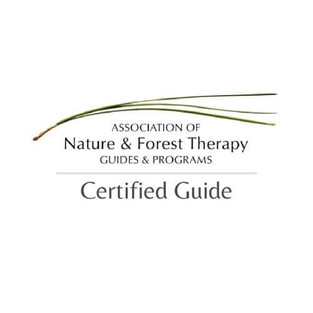An Organizational Coach and Certified Forest Therapy Guide’s Perspective – Part II - Siobhan M
- R&R Institute
- Mar 26, 2019
- 3 min read
Last week week we had the opportunity to meet Siobhan, an organizational coach and certified forest therapy guide working with urban professionals looking to create sustainable lifestyles by connecting with nature. This is Part II, the finale of Siobhan’s wonderful perspective coming full circle with insights, wisdom, as well as next steps for those who are interested.
Q3: You make an interesting point that forest bathing is a calmer, healthier, more inviting path to a changing mindset of sustainability (and support for leaders who value our home), as well as one that may be longer lasting. Do you notice people are more likely to stick with their long-lasting sustainability habits after a forest therapy session during which you’ve noticed this deep, emotional connection?
Emotions drive a lot of our decisions whether we realize it or not. In the modern western world, we tend to rely on intellect. But that doesn’t always provide the whole story. Forest bathing is an experience that asks participant to use all their senses, include felt sense and intuition. It offers a way to “Be” and to heal through a biochemical exchange with trees, plants and water. In this way, it is a holistic experience. As a guide, I open the door, the forest is the therapist and the participant receives.
Many of my clients want to build a life or business being more deliberate to include nature and reciprocate with the planet but find their own nature is to keep life the same. This is where coaching can be supportive. When a person needs to build new skills or gain knowledge along with the new mindset, a coach can prompt and encourage growth as well as normalize setbacks. An individual may need to enable and influence others in their family, community or work to gain cooperation towards a new goal or vision. For some, this has the potential for difficult conversations and conflict. Change often can give rise to other systemic or societal issues that lay just under the surface. A coach can offer a safe space to work through these concerns as well as to celebrate success.
Q4: Essentially the goal is to trigger awareness in the general public that nature is not something outside of ourselves; we are all nature, experiencing itself. Once we become aware of that fact, emotionally and perhaps spiritually, we will also be nature nurturing itself. Would you agree?
I agree. Forest therapy is founded on reciprocity. I work as a partner, to support wellness for people and nature alike. I notice in my clients that once there is awareness that the land, trees and water are giving something to them, it’s hard to shut it off this understanding. But, it does go dormant once we head back into our drywall and glass buildings. Repetitive exposure to nature is the best antidote for nature deficit disorder. Yes, it is a disorder. I recommend clients find a convenient sit spot, and go to it at least once a week. A sit spot is a place outdoors not far from home or work where you can be a part of the nature.
Q5: Two part question: I know we discussed regarding your reading of 'Spell of The Sensuous' (wonderful book), but have you also read 'Animate Earth - Science, Intuition & Gaia', 'Original Wisdom', 'Last Child In the Woods'? And what is the role of authors and artists in our world to help emotionally reconnect us to that which we lost amidst progress so that the progress isn't as destructive as it has been lately?
Interesting question! Yes, there is a litany of books, research papers and authors I’ve read and recommend. What I find interesting about this question is how storytelling is a powerful way to communicate. During a forest bathing walk, we pause periodically, to form a circle and share the story of what we just experienced. Silence is also welcome.
What I find important about this part of the walk is the way we accept each other and how easily we share with each other. We yearn for connection and to be ourselves.
We live in a world of sometimes very strict social conditioning, of “shoulds” or “you must”. Our inner voice is increasingly negative about ourselves. We need more acceptance including self-acceptance.
I encourage my clients looking to rekindle their authentic self to sit or walk amongst the trees and share their story of self. Words are optional. The trees are great listeners.
The authors you reference are bringing these ideas into the mainstream. This enables healing and paves the way for guides like myself. I am grateful for these and many other trailblazers.
Q6: Where can we reach out to have this wonderful experience with you ourselves?
At the moment, the best way to contact me is via LinkedIn.









Comments